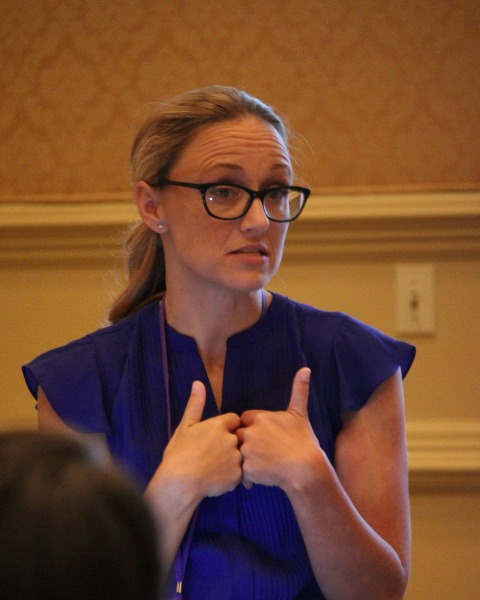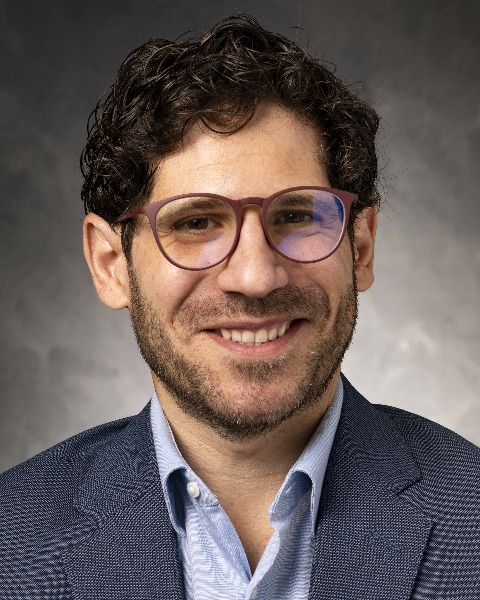Disabilities and Underrepresented Populations
A story of MSC implementation and capturing marginalized voices–-learnings based on various phases of MSC
-
SS
Sarya Sok, n/a
Acting Team Lead, Applied Learning and Evaluation
State Department, Bureau of Democracy, Human Rights, and Labor; Office of Global Programs, United States -
TO
Theophilus Odaudu, n/a
Program Manager, West Africa
Disability Rights Fund, United States -

Nikki Junker, PhD (she/her/hers)
Independent Researcher
Contracting Resources Group, United States -

Giovanni Dazzo, PhD (he/him/his)
Assistant Professor
University of Georgia, United States
Facilitator(s)
Presenter(s)
Disscussant(s)
Location: Room 202
Abstract Information: Most Significant Change (MSC) as a methodology has long served the evaluation community a means to systematically gather evidence by integrating a vital storytelling approach that amplifies voices of people at all levels. In this session, two organizations share their stories about the learnings that have emerged in their journey of using MSC as they have completed different phases of the methodology. As organizations that have a distinct focus on persons from marginalized groups, discussants from the Disability Rights Fund, State Department Bureau of Democracy, Human Rights, and Labor share their learnings on how stories are told, valued, and gathered from individuals of diverse backgrounds. Discussants will also cover the challenges they have encountered and ways those challenges are addressed. Finally, the group will offer ideas for evaluators who are interested in using MSC as a tool for ensuring stories told by individuals, who have been historically marginalized, are seen and valued in their communities and beyond.
Relevance Statement: The proposed session links last year’s theme on (re)shaping evaluation together to the current conference theme on the Power of Story from a perspective the continues to push evaluators in evolving our practice. If evaluators aim to counter the extractive and colonized practices that often are embedded into methodological efforts to be objective and neutral, then they need to actively shift the power dynamics in all the stages of monitoring, evaluation and learning and abide by the Do No Harm principles. By examining MSC in many of its phases, this session will explore how values and intentionality matter when evaluators reshape their practice and honor peoples’ stories. Presenters will share how, in some cases, incorporating the lived experiences of persons who have been marginalized through MSC processes has provided more relevant insights and recommendations on programs and strategies.
Presentations:
-
11:30 AM - 12:30 PM ETA story of MSC implementation and capturing marginalized voices–discussant
Presenter: Giovanni P. Dazzo, PhD (he/him/his) – University of Georgia
-
11:30 AM - 12:30 PM ETA story of MSC implementation and capturing marginalized voices–facilitator
Presenter: Sarya Sok, n/a – State Department, Bureau of Democracy, Human Rights, and Labor; Office of Global Programs
-
11:30 AM - 12:30 PM ETClues to Marginalized Population Impact: A Case of MSC in Nigeria
Presenter: Nikki Junker, PhD (she/her/hers) – Contracting Resources Group
-
11:30 AM - 12:30 PM ETMarginalized Voices and Most Significant Change: Early Lessons Learned from Intentional Design
Presenter: Theophilus Odaudu, n/a – Disability Rights Fund
Presenter: Melanie Kawano-Chiu, MA (she/her/hers) – Disability Rights Fund/Disability Rights Advocacy Fund
